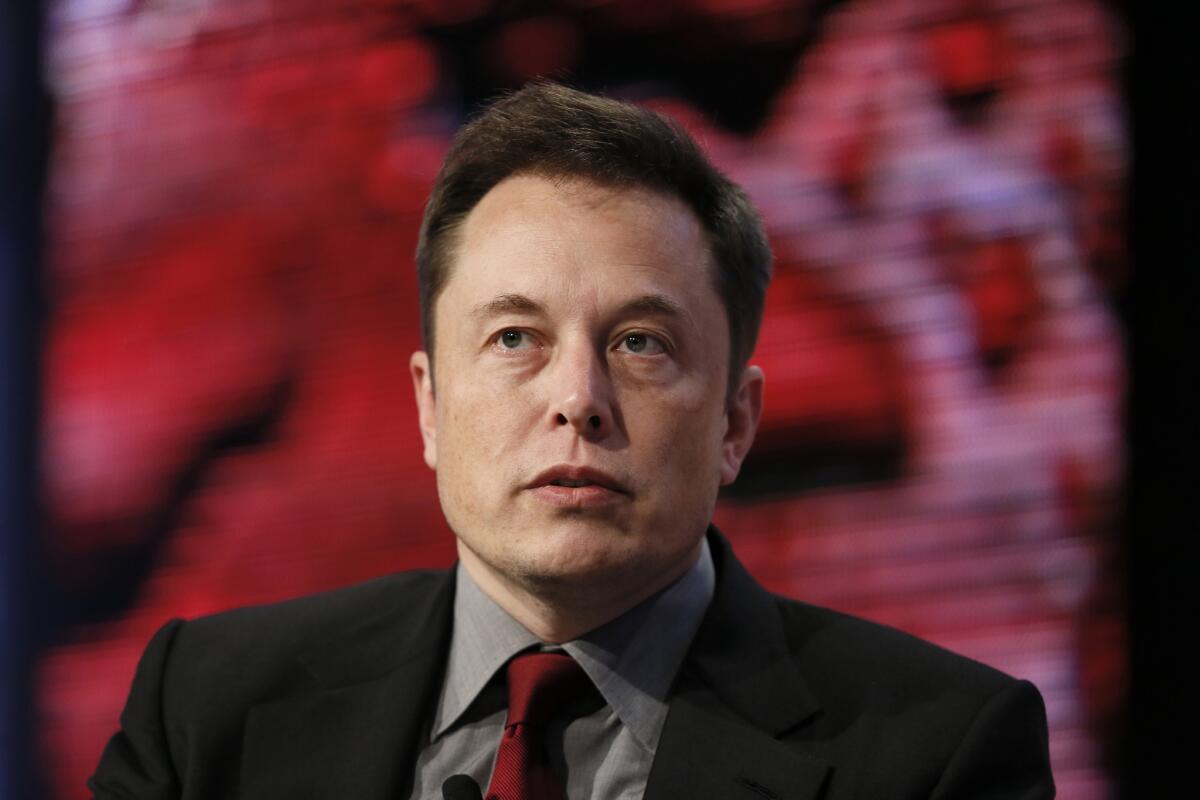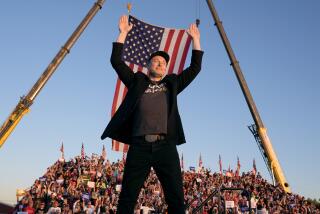Judge deems Musk’s ‘funding secured’ tweet false and misleading. A trial awaits

Tesla Chief Executive Elon Musk’s famous “420” tweet continues to haunt him.
Musk and Tesla settled fraud charges in 2018 with the Securities and Exchange Commission after Musk tweeted that he had “funding secured” to take Tesla private at $420 a share. He had secured no such funding. Musk and Tesla each paid $20 million and Musk gave up his Tesla chairmanship for three years.
Now, a civil class-action shareholder lawsuit will go forward against Musk and the company on the same issue. Tesla had filed a motion to dismiss the case, but a federal judge denied it Wednesday.
The suit says that short sellers and long investors lost huge amounts of money as the stock skyrocketed on the funding-secured claim, then crashed when Musk couldn’t verify the tweet was true.
In its motion, Tesla said the case should be tossed because the plaintiffs didn’t prove the tweet was false and misleading. The motion said Tesla itself should not be part of the suit because Musk was tweeting as a “potential bidder,” not as Tesla’s CEO. The motion said Musk’s motives did not include burning short sellers. (Short sellers make money when a stock price falls.)
U.S. District Judge Edward M. Chen in San Francisco was having none of it. In a 41-page ruling released Wednesday, Chen wrote, “The rise and fall of Tesla’s stock prices corroborated with the timing of the alleged false and misleading statements, all of which occurred within a less-than-two-week period, and which suggests Mr. Musk’s false statements were the proximate cause.”
On whether Musk’s tweet represented Tesla, Chen wrote Musk “was in fact speaking as the CEO of Tesla within the scope of his authority.” The judge noted that “in November 2013, Tesla formally notified investors that it would use Musk’s Twitter account as a formal means of communication to convey ‘additional information’ about the company to investors.”
On whether Musk had it out for short sellers, thus providing a motive for his tweet, the judge wrote that “even if Mr. Musk stood to gain no direct financial benefit from the false statement, he stood to gain satisfaction from watching the short-sellers lose on their investments, sellers against whom he allegedly harbored animosity.”
The judge cited, among the evidence, a Musk tweet posted weeks before the 420 tweet that read: “Oh and uh short burn of the century comin soon. Flamethrowers should arrive just in time.”
Three days after the 420 tweet, Musk turned to Twitter again: “Short shorts coming soon to Tesla merch[andise.]”
When the trial will begin is uncertain, given the COVID-19 pandemic.
Another major class-action shareholder lawsuit against Musk has also been delayed. That suit, filed in Delaware Chancery Court, says Tesla’s 2016 acquisition of Solar City was marked by fraud and engineered mainly to rescue Musk and other family members who held major stakes in Solar City as the company’s finances deteriorated.
Tesla did not respond to a request for comment.
More to Read
Inside the business of entertainment
The Wide Shot brings you news, analysis and insights on everything from streaming wars to production — and what it all means for the future.
You may occasionally receive promotional content from the Los Angeles Times.











